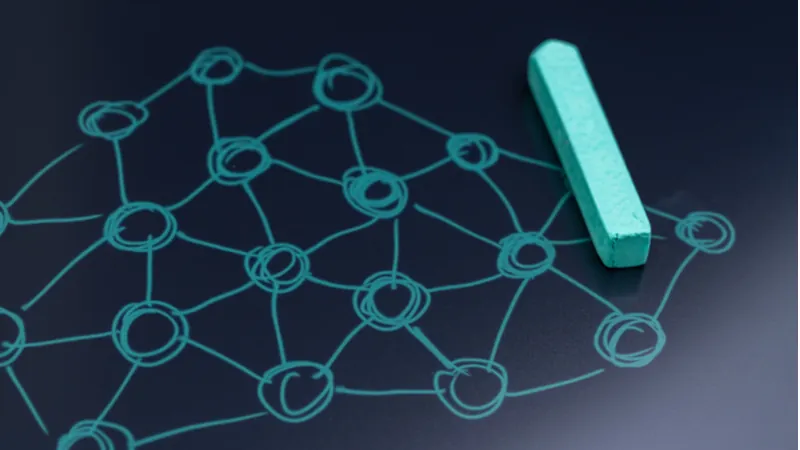What Is a DAO? All About Decentralized Organizations
At a country fair in 1906, 800 people entered a contest to guess the weight of an ox. Scientist and mathematician Francis Galton was also in attendance. Upon analyzing the contest ballots, he noted that the average guess was within 1% of the ox’s actual mass. He called this “Vox Populi”: the voice of the people, wherein the collective thought-power of the group is believed to be more powerful than any single individual.
The concept of the wisdom of the crowd is nothing new. It can be traced back to the 4th-century writings of Aristotle. In his book, Politics, he wrote about the concept of collective judgment.
These concepts are reflected in cryptocurrency and blockchain technology in the form of a DAO, the definition of which is a decentralized autonomous organization. A DAO uses blockchain technology to gain consensus using a set of rules written in code and enacted using shared software on a network of computers. These rules allow organizations to make decisions based on the software rather than the decisions of committees, managers, or boards.
What is a decentralized autonomous organization, and how does it work?
Essentially, a DAO is a platform that allows people to organize, create rules, make decisions, and conduct virtual management. DAOs are transparent. They are not influenced by any government and are free of bureaucracy and hierarchy, which is precisely what makes them decentralized and autonomous.
DAOs operate based on rules set in smart contracts: computer programs that run automatically when specific predetermined conditions occur. These rules are created by a team of community members and are transparent to the DAO’s entire community. They detail how the DAO functions, the criteria for the smart contract to run, and the DAO’s framework.
The smart contracts containing the organization’s operating rules are written into the blockchain, which leads to its governance. To function, a DAO needs a community and finances, and to establish them, it starts a funding round in which almost anyone interested in the work of the DAO can invest in it.
DAO members pay for voting rights, which allow their holders to vote on proposals. Usually, these voting rights are distributed in the form of crypto tokens in a token maker event. Once the tokens have been distributed, the DAO is put into production. During this stage, the original rules are confirmed in the blockchain and can’t be changed without consensus from the token holders.
From this point on, the DAO is working. Its smart contract is executed when its conditions are fulfilled. What does this look like in practice?
Examples of decentralized autonomous organizations
While all DAOs work similarly, how and why they work can be as diverse as any other business on the planet, and there truly is something for everyone. But to get to grips with how specific kinds of DAOs function, it’s helpful to break them down into categories.
Automated market maker DAOs (AMMs)
Aimed at bringing decentralized finance to their users, AMMs such as MakerDAO and Uniswap utilize blockchain technology to generate capital for decentralized finance (DeFi). This is generally done using liquidity pools, which reward the pool’s users with its native tokens.
Investment DAOs
Investment-style DAOs, also known as venture DAOs, work to make investing more accessible. In the past, venture capital could only be acquired by convincing an individual investor or a group of investors of the viability of a project. Investment DAOs make this process collective, readily permitting larger and more varied groups of investors to finance start-up companies and add them to their portfolios. However, it’s not just for-profit organizations that can benefit.
Grant DAOs
Whether they are start-ups or non-commercial organizations, grant-based DAOs can empower companies with community-based finance, which may provide for much wider aims. They represent a move away from “strings attached” traditional grants, which dictate terms based on the decisions of a defined group of people and issue funds based on the opinions of an established board. Projects such as VitaDAO are prime examples of community-based fundraising. It allows longevity projects, which are traditionally too risky for traditional investors.
Social DAOs
Social DAOs are focused on creating communities based on shared values. For example, they can connect artists, thinkers, venture capitalists, and other collaborative communities. Examples include Friends with Benefits (FWB) and the NEAR ecosystem, which was launched in 2020 as a platform for social apps.
Collector or NFT DAOs
Collector or NFT DAOs are designed to purchase or acquire exclusive digital materials, such as NFTs or intellectual property—much like a gallery would purchase a piece of art. For example, the PleasrDAO community bought the Doge meme for over $4 million, the backers of the Flamingo DAO purchased the ‘CryptoPunk #2890’ for ~$750 thousand.
Media and entertainment DAOs
Just as AMMs focus on decentralizing finance, media and entertainment DAOs do the same for entertainment and information. For example, Tenoorja is working to democratize social media by returning it to the hands of content creators. Meanwhile, SO-COL (or IreneDAO) aims to be a crypto-version of Patreon, and CanDAO intends to bring people of similar goals and intentions together on social media.
A possible decentralized future
The secret of using consensus-based blockchain technology could lie in business and finance journalist James Surowiecki’s argument for the wisdom of the crowd. For consensus to be effective, it needs five key factors: diversity of opinion, independence from other participants, decentralization, aggregation or a tool for collective decision making, and trust. Properly set up and utilized, a DAO could encompass all these aspects, making it a tool for fair and decentralized governance.




